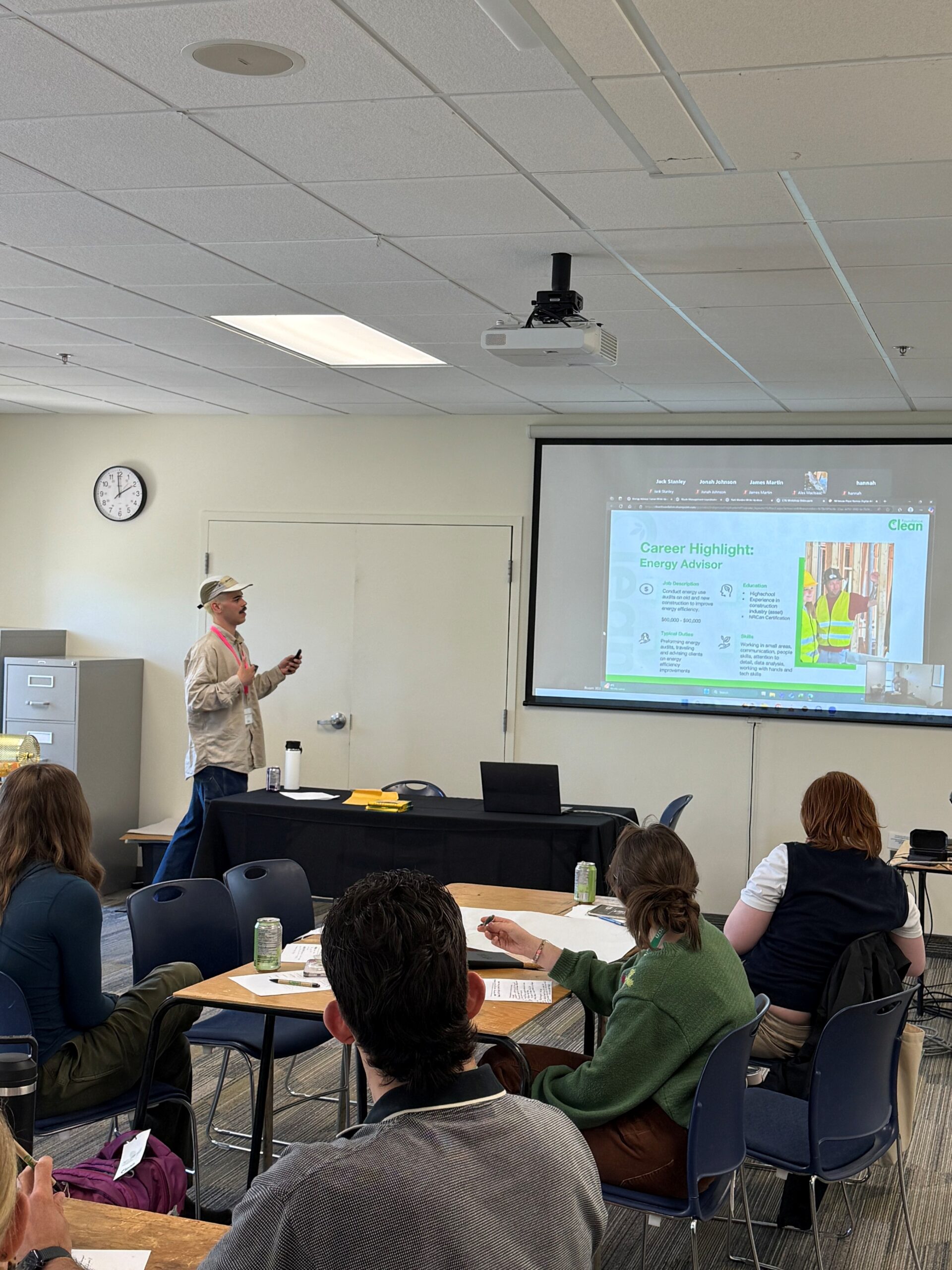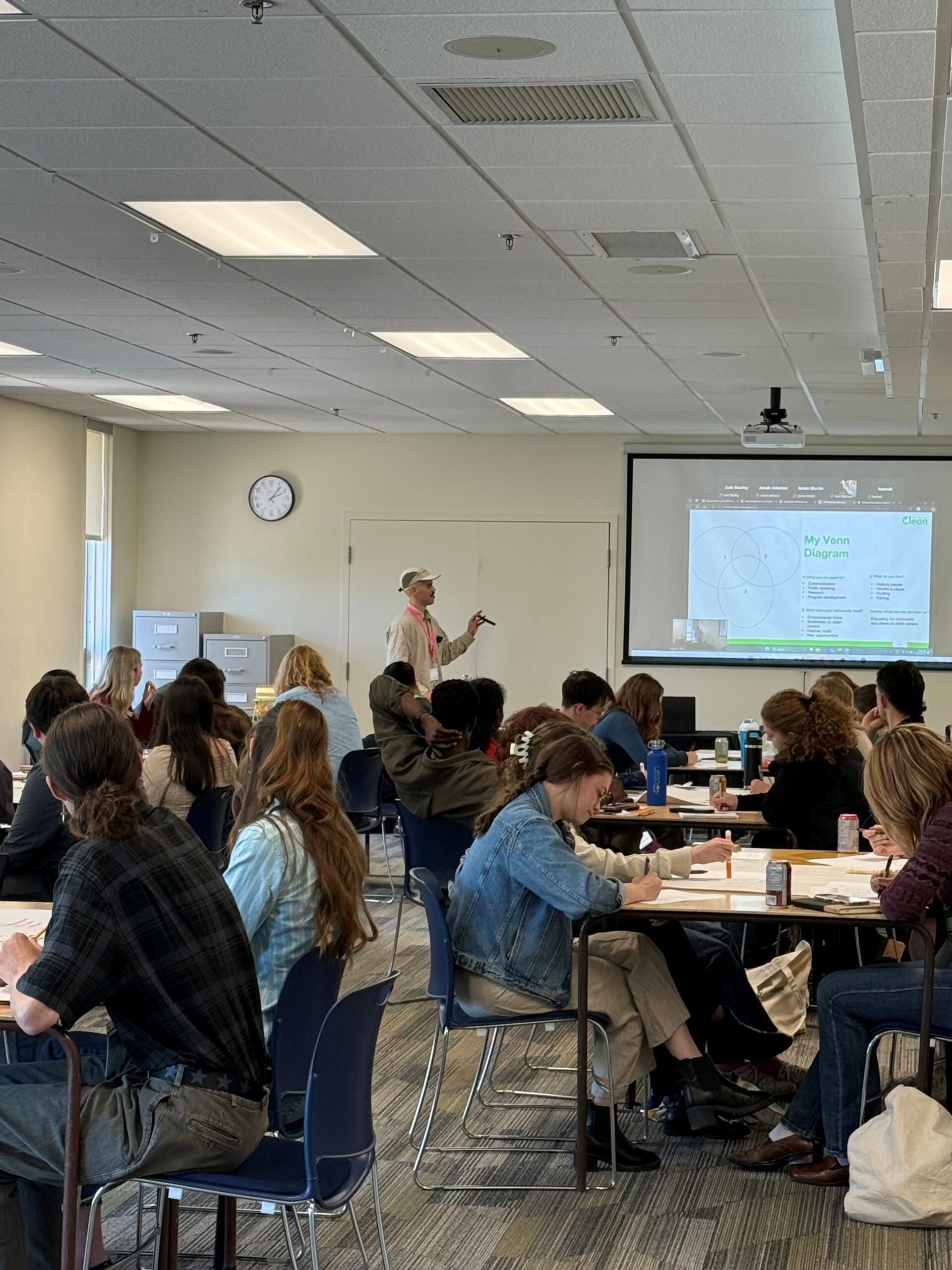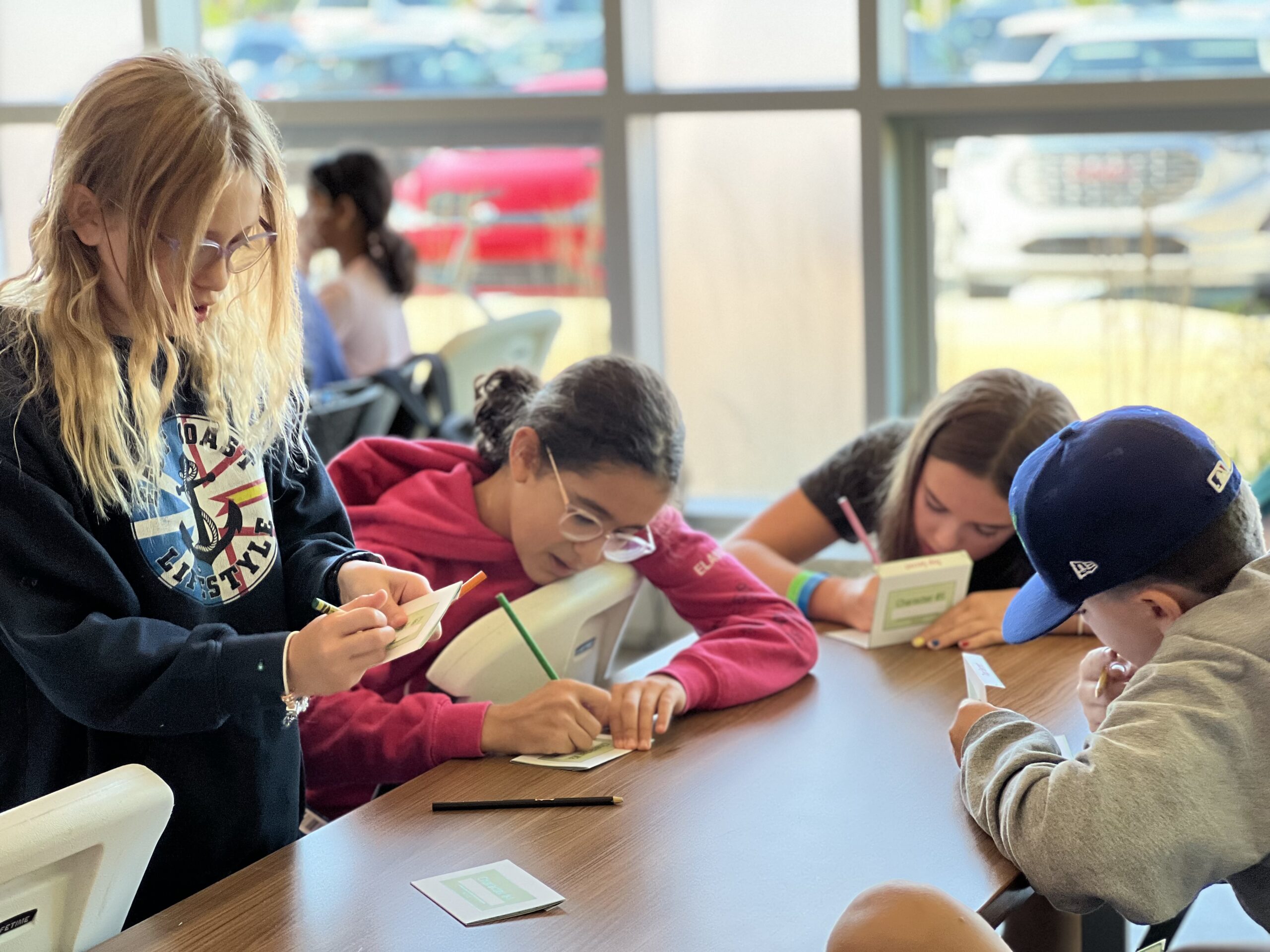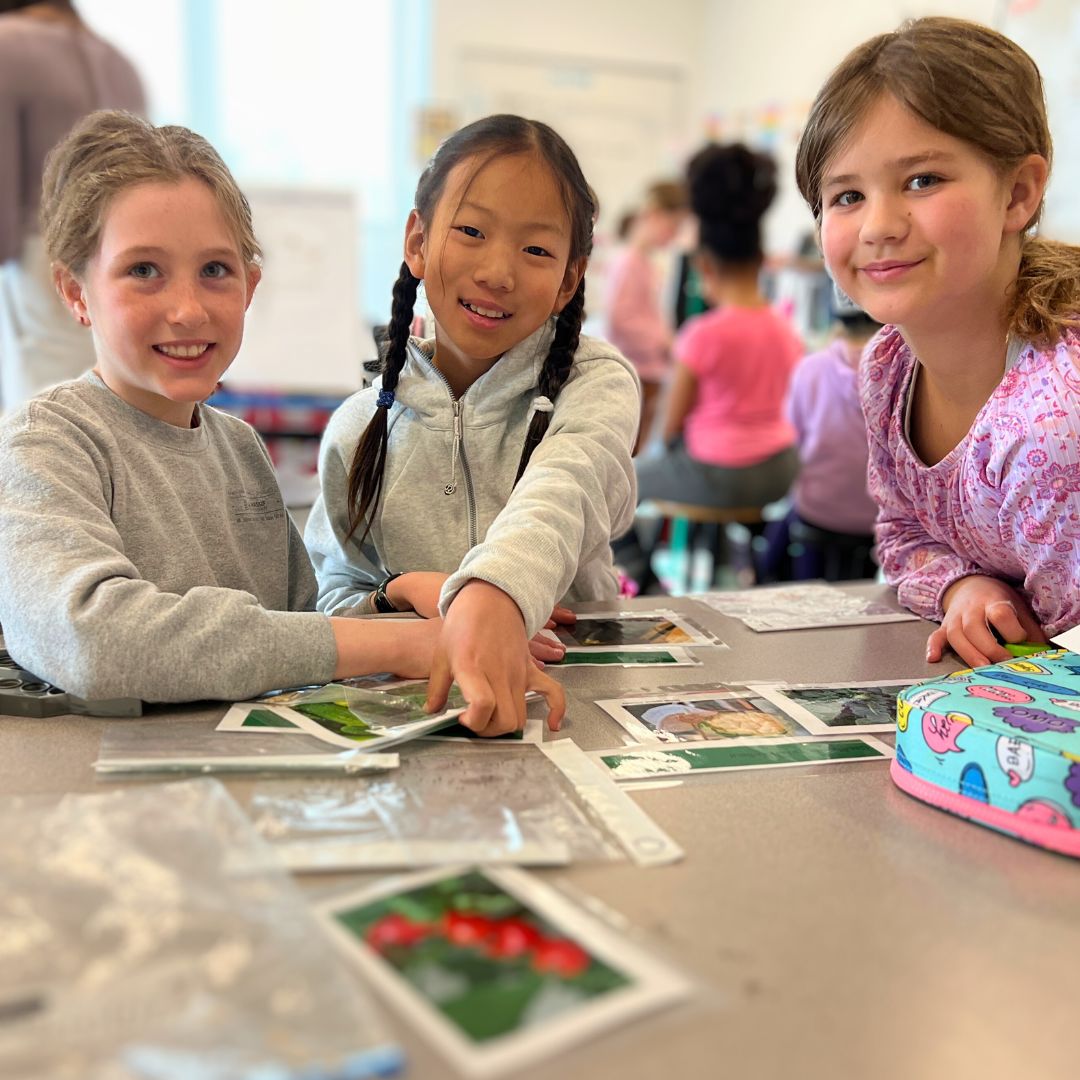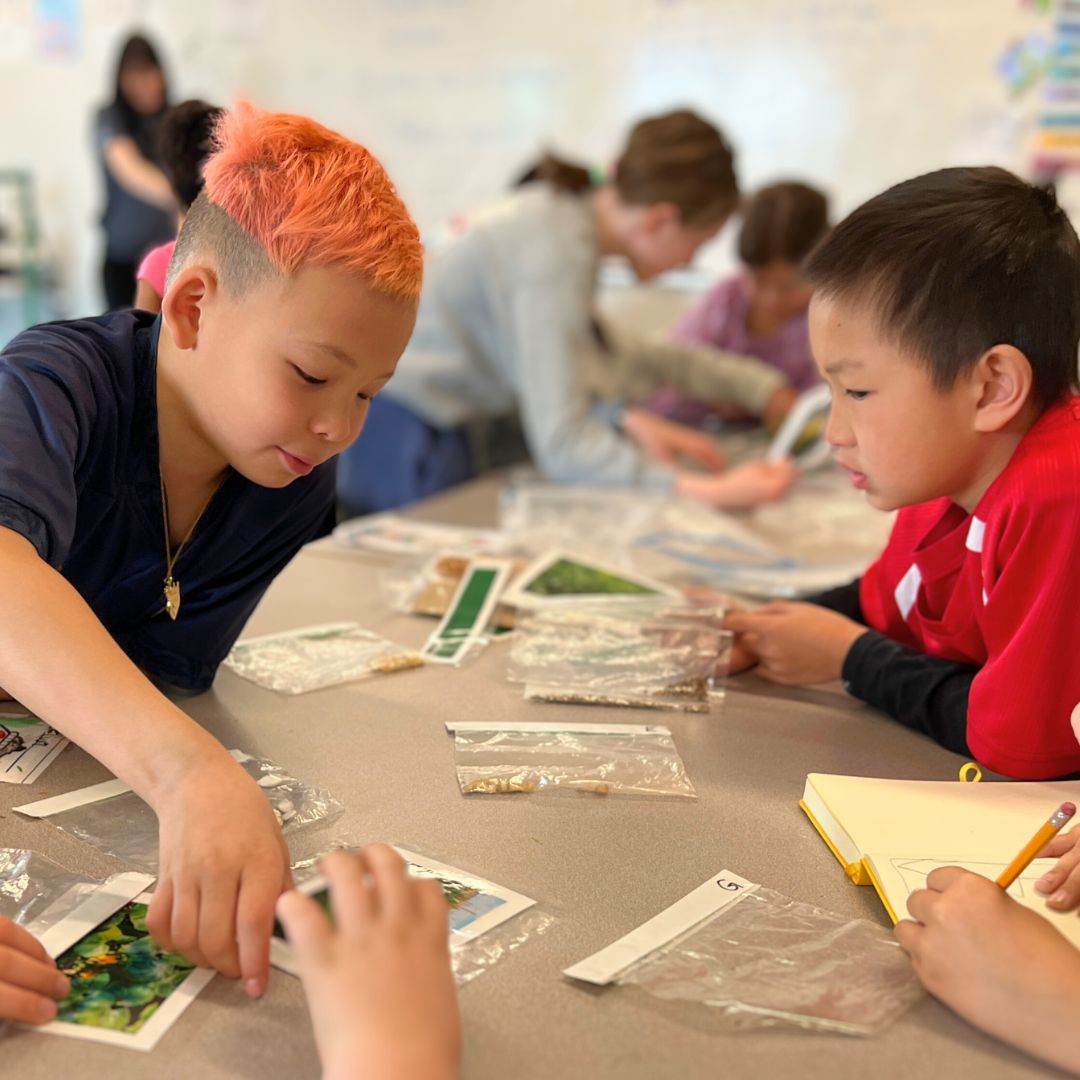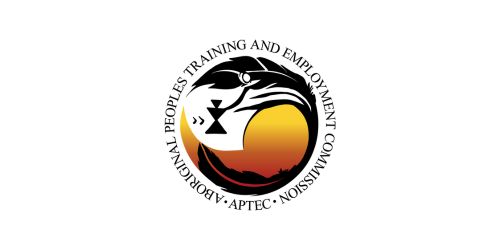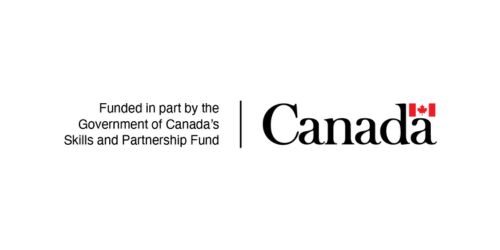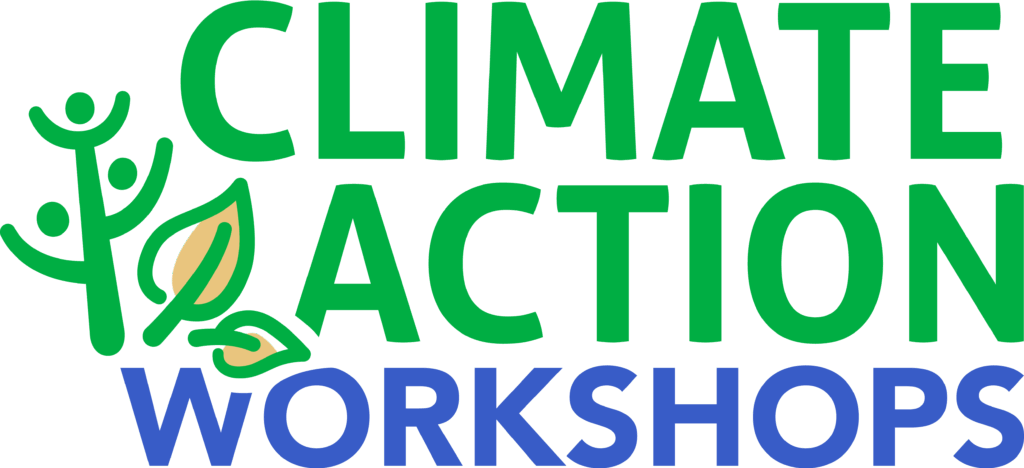Environmental education programs for schools, clubs and youth groups.
Book your school workshop now!Please note that for the 2025-26 school year, Clean Foundation programming will be available for public school classes, based on regional availability.
Please register your class to find out when Clean Foundation will be in your region!
If you are a private school, community group, or other organization, please connect with us at EducateEngage@cleanfoundation.ca to discuss possible programming options.
Youth Programming
Careers for 7 Generations
Designed for: Grade 9-12 classes at Mi’kmaw Kina’matnewey Schools and groups of Indigenous youth at off-reserve public schools.
Status: Now accepting Bookings for the 2025 – 2026 School Year.
Language: This program is available in English.
Careers for 7 Generations helps high school-level learners explore exciting career opportunities in the growing clean economy. An initiative of the Indigenous Energy Project, this workshop offers a unique blend between career exploration and traditional knowledge. Learners will explore how their lived experiences, skills and interests can be connected and applied to opportunities in the clean economy and the Mi’kmaw practice of Netukulimk. Through games, self-reflection and group activities, learners will examine environmental issues in their own community, and consider how they can play a role in a cleaner economy.
“The Careers for 7 Generations workshop is what I wish I knew in high school. The goal is to help students start to think about potential career paths in a holistic way – guiding students to explore careers that fit their skillset, preferences and their community’s needs.”
– Matthew Copage, Community Educator, Clean Foundation
Requirements
Format: In-person.
Time requirements: This program is run optimally in 2 class periods (approximately 1 hour and 20 minutes); we will do our best to accommodate your period length and class schedule.
Location requirements: Classroom environment with a screen and projector.
Designed for: Grades P-3
Status: Booking is open for the 2025-26 school year, beginning October 2025! Register your class to find out when Eddie will be visiting your region. Please note that we may not be able to accommodate specific dates. If an in-person visit isn’t possible in your region, please contact our team to discuss options.
Request a 2025-2026 Program with Clean Foundation!
Language: This program is currently delivered in English. However, French resources for learners are available after receiving the program.
Eddie is a cat, a loveable puppet and an environmental superhero who is standing up for all the critters of the world and the environment they live in. Through fun, engaging and interactive performances filled with humour, rhyming and song, Eddie teaches elementary schoolers about the importance of keeping their neighbourhoods clean from litter.
“Our students were so engaged. Such a great way to teach the children the importance of taking care of our earth. And such wonderful activities for teachers to continue working on with their students!”
– Primary/Grade 1 about Eddies Litterless Quest
Eddie’s visit
Eddie will visit a classroom for an in-person or virtual performance about his quest to rid the world of litter.
Important to remember: Eddie’s tour schedule is based on regional availability. To find out when he’ll be in your area, please complete our booking request form. we may not be able to accommodate specific dates. If an in-person visit isn’t possible in your region, we’re happy to offer a virtual presentation or discuss alternatives, instead!
Time requirements: One hour (in-person); 45 minutes (virtual).
Location requirements: Classroom or library/Music room environment.
Technology requirements (for virtual): Computer, webcam, reliable internet connection, external speaker(s) and the ability to project to a large screen for all too see.
The Quest
Following Eddie’s visit, the Quest component of this program will challenge learners to reduce the waste in their classrooms and lunches over the course of a month. Learners will participate in a variety of educator-led activities that will teach them about waste, health and nutrition through a cross-curricular approach, as well as how to make a positive environmental impact in their communities.
Time requirements: One month (flexible).
Completing the Quest
To cap off the program, the class will receive a virtual visit from Eddie and Big Foot to congratulate them on their Quest!
Time requirements: 15-20 minutes (virtual).
Location requirements: Classroom.
Technology requirements: Computer, webcam, reliable internet connection, external speaker(s) and the ability to project to an audience.
Designed for: Grades 7-8
Status: Bookings for Youth Programming are now open for October 2025! Register your class to find out when Clean Foundation educators will be visiting your region.
Please note that we may not be able to accommodate specific dates. If an in-person visit isn’t possible in your region, please contact our team to discuss options.
Request a 2025-2026 Program with Clean Foundation!
Language: This program is available in English and French.
Solutions to climate change are out there – happening right now! To take action on climate change, we need to know what it is, why it’s happening and how it will impact the planet. In this workshop, Grade 7 or 8 learners will gain foundational knowledge on the science behind climate change, and make connections between climate impacts and real-world solutions. Using probeware, conducting experiments, exploring simulations and using two-eyed seeing to consider Indigenous evidence of a shifting climate, learners will then use their own skills and interests to act on an issue that is important to them.
Requirements
Format: In-person.
Time requirements: Three hours.
Location requirements: Classroom environment, optional outdoor portion if a suitable space is available at your school.
Designed for: Grades 7-8
Status: Bookings for Youth Programming are now open for October 2025! Register your class to find out when Clean Foundation educators will be visiting your region.
Please note that we may not be able to accommodate specific dates. If an in-person visit isn’t possible in your region, please contact our team to discuss options.
Request a 2025-2026 Program with Clean Foundation!
Language: This program is available in English and French.
Clean Water School is a three-part, experiential education program for learners that takes place in the natural environment.
The Coastal version of the program helps teach Grade 7 and 8 learners about shorelines and coastal areas and the impacts that humans have on them, while inspiring them to explore various ocean-related technologies careers. It also introduces them to lab and field skills, scientific observation methods and the concept of two-eyed seeing.
The Stream version of the program helps teach Grade 7 and 8 learners about watersheds and the impacts humans have on them, while encouraging them to dive into various scientific and water-related careers. It also introduces learners to lab and field skills, scientific observation methods and the concept of two-eyed seeing.
“[I liked the] relaxed pace of activities to take our time with observations and recording; incorporating two-eyed seeing; using tools we don`t have access to at class; [and] being outside all day.”
– Grade 7/8 teacher about Clean Water School
Clean Water School – Coastal
Field Day Foundations Virtual Workshop
The first part is a virtual workshop, where Clean Educators introduce learners to the important concepts, skills, and safety considerations that they will need to know for the program.
Field Day
Learners get to use their new knowledge and skills to be a “coastal scientist” and collect data from the ocean’s edge.
This involves making detailed observations of coastal zone features and evidence of processes such as erosion, as well as examining the shoreline for evidence of human impacts.
Taking Action
The last part of the program invites the class to create an environmental stewardship plan to support the health of a coastal area near their school or community.
Clean Water School – Stream
Field Day Foundations Virtual Workshop
The first part is a virtual workshop, where Clean Educators introduce learners to the important concepts, skills, and safety considerations that they will need to know for the program.
Field Day
Learners get to use their new knowledge and skills to be a “water scientist” and collect data from their local watershed.
Learners will be conducting chemical tests on water samples, collecting and identifying macroinvertebrates (bugs), looking at the features of the stream and determining potential human impacts.
Taking Action
The last part of the program invites the class to create an environmental stewardship plan to support the health of a coastal area near their school or community.
Requirements
Time requirements:
– One hour for the Field Day Foundations virtual visit.
– Three and a half hours of programming time for the Field Day Excursion (does not including travel to and from field site).
– Follow up period at your discretion to address your classes environmental stewardship plan.
Location requirements: This program is designed for schools that are within walking distance to a stream, river or coastline. Our team can work with you to identify a safe and ideal location for the Field Day. If you have concerns around field site accessibility and/or learners’ abilities, please contact us to discuss your options.
Technology requirements: Groups will join the Field Day Foundations virtual workshop via a laptop connected to a screen at the front of the class.
Chaperones requirements: We require three chaperones in addition to the teacher per class group (max. 30 learners per class group; up to two classes can participate at a time depending on the field site and on chaperone availability).
Planning conversation: After receiving your booking request, we will reach out to schedule a video or phone call to plan your Field Day Foundations and Field Day sessions. During this call we will address scheduling, ensure chaperone needs can be met and discuss any questions you or your administration may have.
Designed for: Grade 6
Status: Bookings for Youth Programming are now open for October 2025! Register your class to find out when Clean Foundation educators will be visiting your region.
Please note that we may not be able to accommodate specific dates. If an in-person visit isn’t possible in your region, please contact our team to discuss options.
Request a 2025-2026 Program with Clean Foundation!
Language: This program is available in English and French.
Clean Energy School helps learners explore the science of electricity and energy! Through participation in an interactive hands-on workshop, Grade 6 learners develop their knowledge of a variety of renewable energy sources. They then reflect on the choices they make, and the advances in technology, that are having positive environmental impacts.
Learners will explore wind and solar energy through experimentation and are introduced to geothermal energy, biofuels, marine technology and other emerging fields. We will do our best to work with the time you have available in your classroom.
“The kids loved playing with the solar panels and wind turbines. Some of this equipment could be expensive to purchase as a class set, so it is nice for the kids to have the opportunity to see these items in action.”
–Grade 6 teacher about Clean Energy School
Requirements
Format: In-person.
Time requirements: Three hours.
Location requirements: Classroom environment, optional outdoor portion if a suitable space is available at your school.
Powering our Province
Designed for: Grade 9
Status: Bookings for Youth Programming are now open for October 2025! Register your class to find out when Clean Foundation educators will be visiting your region.
Please note that we may not be able to accommodate specific dates. If an in-person visit isn’t possible in your region, please contact our team to discuss options.
Request a 2025-2026 Program with Clean Foundation!
Language: This program is available in English and French.
Nova Scotia has pledged to acquire 80% of our electricity from renewable sources by 2030. How can we achieve that goal? What technologies will get us there? What jobs and careers will be created?
Working in teams, learners will become energy experts by exploring real-world examples of existing and upcoming renewable energy projects across our province and the technology behind them. Empowered with their new knowledge, teams will use provincial maps, discussion, and debate to draft the perfect location to host a powerplant of their own, all with the mission of exploring how can we ‘Power Our Province’ with renewable energy sources now and in the future!
“The students loved getting to put their choices on the map – this got them out of their seats and they got to give their input! I loved that they all seemed to learn new things about renewable energies, the information cards had so many interesting facts on them. The workshop had so many connections to different courses that they are taking so it complements the curriculum excellently.”
– Emily, Grade 9 Teacher
Requirements
Format: In-person.
Time requirements: This program is run optimally in 2 class periods (approximately 1 hour and 20 minutes); we will do our best to accommodate your period length and class schedule.
Location requirements: Classroom environment, optional outdoor portion if a suitable space is available at your school.
Climate Action Workshops
Empower your learners with the skills they need to lead real climate action projects in their communities.
These workshops can be adapted to ensure age-appropriate and curriculum-connected learning for students in elementary, middle and high school. Workshops are offered in-person and we strive to offer our programs for free to public schools across the province.
Please note that for the 2025-26 school year, programming will be available on a regional basis, and specific dates may not be able to be accommodated. Our team of educators will connect with you to follow up with your booking request to discuss your options.
Status: Open for booking! Request a 2025-2026 Program with Clean Foundation!
Fashion for the Future
Designed for: Grades 4-12 (content and activities adapted for student grade level)
What are the environmental and social impacts of the ‘fast fashion’ industry? What other options exist for local and sustainable clothing options? How can we create our own beautiful, unique items while protecting the planet? In this fun, hands-on workshop, students will get crafty and learn simple ways to ‘upcycle’ old, unwanted textiles into useful new items. We’ll explore how ‘fast fashion’ affects us all and discover some great alternatives, including local projects happening right here in Nova Scotia! Students will leave this workshop feeling empowered to take action in age-appropriate ways to support sustainable clothing choices.
Students will be asked to bring in their own unwanted clothing items in advance of the workshop, which will be used for the action project. Our educators will offer upcycling activity options for different ages and skill levels, including a quick and easy no-sew option, as well as a more challenging hand-sewing project for students who want to expand their skillset.
“We loved the hands-on nature of the workshop and the idea that we were making something new out of something that no longer had a use. We liked the idea of upcycling rather than having the item no longer be useful.”
– Erin, Grade 4 Teacher
Format: In-person.
Time requirements: One to two hours.
Location requirements: Flexible (classroom, gymnasium, outdoors, etc.).
Language: This program is currently delivered in English and French.
Curriculum connections:
Grade 4-6: Sustainability practices, basic human rights issues, age-appropriate actions, textile crafts.
Grade 7-8: Interconnectiveness and sustainability, textile production and clothing choices, human impacts on climate change, climate change mitigation and adaptation.
Grade 9-12: Sustainability and resource management, textile production and global supply chains, climate change mitigation and adaptation, global citizenship, green careers.
Soil Solutions
Designed for: Grades P-12 (content and activities adapted for student grade level)
What is soil, and why should we care about it? What’s the connection between soil health and human health? How can taking care of our soil help us solve climate change? Does sorting our waste really matter, anyway? By exploring soil formation, soil ecosystems and the importance of maintaining soil health, this interactive workshop will help students see that exciting climate change solutions might be… just beneath their feet.
Through hands-on activities and engaging conversations, students will learn about composting as a climate solution and how they can take action in their own homes, classrooms or communities to help build healthy soil. This workshop emphasizes how everything on planet Earth is connected, from worms and plants to CO2 and sunshine. Roll up your sleeves and get ready to dig into the magical, muddy world of life within the soil!
Note: We are excited to supply a limited number of classes with Community Clean-up Kits as part of this workshop! These kits are available on a first come, first served basis and will provide you with the knowledge and all the supplies you need to plan and complete a community clean-up, as well as resources to further your learners’ experience, suggestions for taking your learners outside and more!
“My students LOVED this experience! The timing of activities were perfectly executed with the time spent listening and time spent engaging in activity. The hands-on experience is the most beneficial to student learning although some learners that do not like to “get their hands dirty” were engaged with the other activities.”
– Crystal, PP-3 Teacher
“It was a lovely workshop. Our students really enjoyed digging for worms and bugs. The instructors where friendly and welcoming. And we enjoyed the overall experience. – Thank-you!!”
– Amanda, Grade 9-10 Teacher
Format: In-person.
Time requirements: One to two hours.
Location requirements: Flexible (classroom, gymnasium, outdoors, etc.).
Language: This program is currently delivered in English and French.
Curriculum connections:
Grade: P-3: Interconnectiveness, appreciation and empathy for living things, soil as an environment, caring for the environment, cooperation, investigating sustainability and sustainable action.
Grade 4-6: Abiotic and biotic components of ecosystems, habitats, what plants need to grow, weathering, erosion, and soil formation.
Grade 7-8: Interconnectiveness of ecosystems, the greenhouse effect, climate change mitigation and adaptation, leading a community action project.
Grade 9-12: Sustainable agriculture and soil ecology, climate change mitigation and adaptation, carbon sequestration, global citizenship, green careers.
